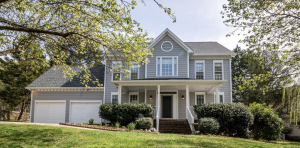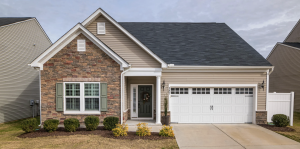When looking at commercial lease terms, you need to check several key parts of the contract carefully. Important items include how much rent you’ll pay, who covers which expenses, how long the lease runs, and if you can extend it later. Make sure the lease clearly shows which repairs the landlord handles and which ones are your job. Pay attention to what you can use the space for, what insurance you need, and who’s responsible if something goes wrong. It’s also important to understand fees for shared spaces like lobbies and parking lots, plus any money offered for fixing up the space. Taking time to review everything helps protect your business and shows where you might negotiate better terms.
Key Takeaways
- Compare base rent and operating expenses with similar properties to ensure market-competitive rates and fair cost allocation.
- Review maintenance responsibilities carefully, ensuring clear delineation between landlord and tenant duties for repairs and upkeep.
- Assess lease length and renewal options to balance flexibility with rate stability and include predetermined terms for extensions.
- Examine use clauses thoroughly to ensure permitted activities align with current operations and future business growth plans.
- Verify insurance requirements and liability terms specify adequate coverage levels and clearly define responsibilities between parties.
Understanding Base Rent and Operating Expenses
Commercial leases have two main costs that renters need to check carefully: base rent and operating expenses.
When looking at base rent, renters should think about how much they’ll pay for each square foot, how much the rent will go up each year, and what other similar buildings in the area charge.
Operating expenses include things like power bills, property taxes, building insurance, repairs, and costs for shared spaces that building owners charge to their renters.
Anyone planning to rent should look closely at both the starting rent and all the extra operating costs to figure out their total monthly payments and work out a fair deal that matches what others typically pay.
Analyzing Lease Length and Renewal Options
When deciding how long to lease, businesses need to weigh their goals against what’s happening in the market.
Shorter leases give tenants more freedom to move or change plans, while longer leases lock in rates and protect investments.
Having the choice to renew a lease helps businesses reduce risk by letting them stay longer on set terms.
To renew well, tenants should start talks 6-12 months before their lease ends.
These talks usually cover new rates based on current market prices and updates to old lease terms.
It’s smart to include several renewal periods in the lease, with clear rules about rent increases and when to give notice.
Reviewing Maintenance and Repair Responsibilities
Clear rules about repairs and upkeep must be part of every business lease, as these tasks affect how much it costs to use the space.
When both landlords and tenants know their duties for keeping up the property, they can better plan their spending and protect the building. The lease needs to spell out who takes care of the building’s basic parts, its working systems, and shared spaces.
- Basic building fixes like roof work, wall repairs, and foundation care
- Taking care of heating and cooling units and when to replace them
- Keeping water pipes and electrical wiring in good shape
- Upkeep of areas everyone uses
- How quickly repairs must be made when problems happen
Both sides need to look closely at these rules to make sure the work is split fairly and that it’s clear who must handle different tasks during the lease.
Assessing Use Clauses and Restrictions
Checking use rules and limits is one of the most important parts of reviewing a commercial lease. These rules spell out what activities are allowed in the rented space and set clear boundaries that renters must follow.
Renters need to look closely at rules about when they can operate, how much noise they can make, what signs they can put up, and how close competitors can be.
Renters should also think about what they might need in the future, making sure the rules let them grow or change their business when needed.
They must pay close attention to any exclusive rights, local building rules, and any special rules that could affect how they run their business.
Evaluating Common Area Maintenance (CAM) Charges
CAM charges are costs that building owners add to business rental agreements to pay for shared spaces and services. To understand these charges, tenants need to check how the costs are split between different businesses.
When CAM charges are clear and well-explained, businesses can check if the costs are fair and plan for future payments.
These charges usually cover:
- Power, water, and other services for shared areas like front entrances, lifts, and parking lots
- Cleaning services and trash pickup for common spaces
- Upkeep of the property, including garden care and snow clearing
- Safety equipment and guards
- Office work needed to manage shared areas
Before signing a lease, businesses should look closely at how CAM costs are figured out, their right to check the charges, and any limits on cost increases.
Having clear rules about what costs can be included and what proof is needed helps stop arguments about charges later.
Examining Insurance Requirements and Liability Terms
Insurance and liability needs are a key part of checking commercial leases. Tenants need to look closely at what coverage they must have while making sure they follow all rules and handle risks properly.
| Insurance Type | Typical Coverage | Key Considerations |
| General Liability | $1-2M per occurrence | Third-party claims |
| Property | Building replacement value | Contents coverage |
| Business Interruption | 12-24 months | Revenue protection |
| Umbrella | $3-5M minimum | Extra coverage |
Lawyers suggest carefully reading the sections that spell out who is responsible for what between the landlord and tenant. Knowing the coverage limits, what you’ll pay out of pocket, and who needs to be listed on the policy helps avoid problems later and keeps everyone properly covered.
Determining Build-Out and Improvement Allowances
When renting commercial space, tenants and landlords need to agree on how much money will go toward fixing up the space and who will handle the work.
Tenants should understand these details to make smart choices about their space while following the building owner’s rules.
By looking carefully at construction schedules and costs, tenants can plan changes that help their business succeed.
- Ask for improvement money based on space size and what’s normal in the area
- Check building rules and design needs
- Set clear dates for when work must be finished
- Decide who gets permits, hires workers, and handles inspections
- Make clear who owns the changes and what must be removed when moving out
Negotiating Exit Strategies and Sublease Rights
Tenants need good ways to end or share their commercial leases to protect their business when markets change, they need to move, or money gets tight. Clear exit rules help tenants stay nimble while keeping landlords safe. The right to share space with others helps businesses cut costs during tough times.
| Exit Strategy | Impact on Business |
| Early Termination | Financial certainty |
| Assignment Rights | Market adaptability |
| Sublease Options | Risk mitigation |
| Buyout Provisions | Strategic control |
| Force Majeure | Emergency protection |
Tenants should work with lawyers to check these rules carefully, making sure they’re well-protected while keeping good ties with their landlords during talks.
Frequently Asked Questions
How Does Property Zoning Affect My Commercial Lease Terms?
Property zoning rules set clear limits on what kind of business you can run in a rented space. These rules shape your lease details, how much rent you pay, what changes you can make to the property, and what rules you must follow as a tenant.
Can Neighboring Tenants’ Businesses Impact My Lease Negotiations?
The businesses next door can make a big difference when you’re working out a lease deal. They might help bring more customers your way, clash with your type of business, or create issues with noise and crowds that could affect how well your business does and what the space is worth.
What Role Do Property Tax Assessments Play in Lease Calculations?
Property taxes shape how much tenants pay in their leases. When tax values go up or down, the costs get shared between landlord and tenant based on how much space each tenant uses in the building. The yearly tax bill becomes part of what tenants must pay, on top of their base rent.
How Do Anchor Tenant Agreements Affect Smaller Business Leases?
Big stores that draw many shoppers shape the rules for nearby smaller businesses. These main stores can get better deals on their leases and set rules about which other stores must stay open. This affects both the lease terms and how many customers walk by smaller shops.
When Should I Hire a Commercial Real Estate Attorney?
You should get a commercial real estate lawyer before starting talks about a lease, when looking over contracts, if you run into problems with your property, or when dealing with tricky rules that could affect your business’s rights and duties as a tenant.
Conclusion
When looking at commercial lease terms, you need to carefully check several key parts like monthly costs, operating rules, and legal duties. Looking at base rent, CAM charges, upkeep responsibilities, usage limits, and ways to end the lease helps protect your business and lower risks. Our team at Ace California Law and real estate experts can help you get the best lease terms that fit your business needs and current market rates.






